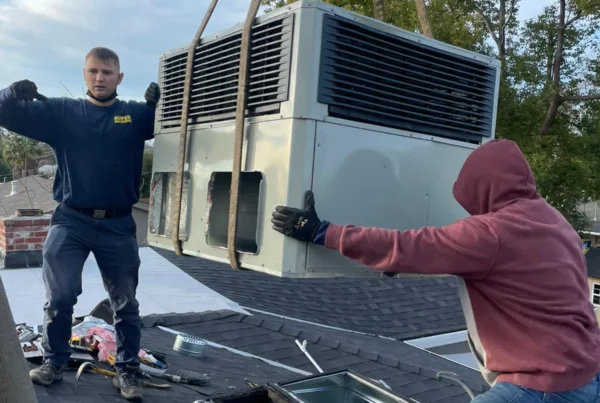The infrastructure of residences, including condos and apartments, often includes extensive plumbing systems, with copper being a widely used material due to its durability and reliability. However, like all materials, copper pipes can eventually deteriorate and require replacement. When the time comes, a copper repipe might be the best solution for your home.
Here, we’ll explore key considerations about copper repiping and when it’s time to take action to ensure the longevity of your plumbing system.
Why Copper Is the Go-To Material for Pipes
Copper pipes are known for their strength, corrosion resistance, and ability to withstand high water pressure and extreme temperatures. These qualities make copper a long-term solution for many homeowners. However, even copper has its limits, and over time, wear and tear can lead to leaks, corrosion, and other issues that require a copper repipe.
Types of Pitting Corrosion in Copper Pipes
One of the most common reasons for copper pipe failure is pitting corrosion. This type of corrosion occurs when certain water conditions, such as pH levels and temperature, interact with the copper material. There are three primary types of pitting corrosion:
1. Type I Pitting Corrosion
This type of corrosion is caused by moderately hard water with a pH level between 7 and 7.8. If the water temperature is below 138°F, the copper pipes can begin to degrade, leading to leaks and potential failure.
2. Type II Pitting Corrosion
Soft water is another culprit when it comes to pitting corrosion. Type II pitting occurs when the pH of the soft water is below 7.2, causing the copper to corrode over time. This is more likely in homes where soft water is used for daily activities.
3. Type III Pitting Corrosion
This type occurs when cold soft water with high pH levels runs through copper pipes. Over time, this can cause significant internal corrosion, resulting in a weakened pipe structure and eventual leaks.
Understanding the type of pitting corrosion affecting your pipes is crucial in determining whether you need a repair or a complete copper repipe.
Do You Need a Complete Repipe?
The question of whether you need a complete copper repipe depends on the extent of the damage to your plumbing system. In some cases, a small section of the pipe can be repaired or replaced without needing to overhaul the entire system. However, if your pipes are old or showing signs of widespread deterioration, it may be more cost-effective to invest in a full repipe.
When Is It Time for a Copper Repipe?
Here are some key indicators that you may need to consider a copper repipe:
- Frequent Leaks: If you’re noticing multiple leaks, it could be a sign that your copper pipes are wearing out. While individual leaks can be repaired, recurring issues often point to a larger problem that requires repiping.
- Discolored or Rusty Water: If your water is brown or rust-colored, it could indicate corrosion inside the pipes. This not only affects the quality of your water but also signals that the pipes are deteriorating.
- Low Water Pressure: Over time, corrosion and mineral buildup inside copper pipes can reduce water flow, leading to a noticeable drop in water pressure throughout your home.
- Visible Corrosion: If you see green or white spots on your copper pipes, this is a sign of corrosion. Visible corrosion usually means there’s more damage occurring inside the pipes that you can’t see.
- Aging Pipes: Copper pipes generally last between 50 to 70 years. If your home is older and still has its original pipes, it may be time to consider a repipe before major problems occur.
Why a Full Repipe Is Often the Best Solution
In some cases, a plumber may be able to repair or replace a small section of your plumbing system. However, with older pipes, this is often just a temporary solution. As pipes continue to age, more leaks and problems are likely to arise. By opting for a full copper repipe, you can save yourself the ongoing hassle and expense of repeated repairs. A complete repipe also provides peace of mind that your home’s plumbing is in excellent condition for years to come.
The Importance of Professional Assessment
If you’re noticing leaks, dripping water, or any of the signs mentioned above, it’s essential to contact a plumbing specialist as soon as possible. A professional assessment will help determine whether a repair or full copper repipe is necessary. Catching these issues early can save you money in the long run by preventing more extensive damage to your home.
Conclusion
A copper repipe is an essential investment in the longevity of your home’s plumbing system, especially if you’re experiencing frequent leaks or signs of corrosion. Regular wear and the different types of pitting corrosion can significantly affect the lifespan of your pipes, leading to costly water damage if left unaddressed.
If you’re unsure whether you need a full repipe or a minor repair, consulting with a specialist is the best way to protect your home from further damage. For expert advice and efficient copper repiping services, contact Super Brothers. Our team of specialists can assess your plumbing system and provide the most effective solution to ensure your home’s pipes remain in excellent condition for years to come.





